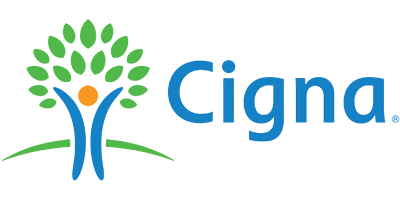Families and loved ones are affected by substance use disorder and also affect outcomes of substance use disorder treatment. According to SAMSHA including family members in a client’s treatment or services for substance misuse is beneficial and makes achieving and sustaining long-term recovery more likely. At The Grove Estate in Indiana, we understand the crucial role family plays in the journey towards recovery. Our Family Therapy Program is designed to address the complex dynamics of addiction, offering a path to healing and understanding for both the individual and their loved ones.
Understanding Family Dynamics in Substance Use Disorders (SUDs)
Substance Use Disorders (SUDs) do not exist in isolation; they are deeply intertwined with family dynamics, affecting and being affected by the intricate relationships within a family. At The Grove Estate, we recognize the pivotal role families play in both the development and recovery from addiction. Our family therapy program is designed to address these complex interactions, fostering a supportive environment conducive to healing and recovery.
1. The Reciprocal Influence of Family and Addiction
- Addiction and family dynamics are mutually influential. The behaviors, attitudes, and emotional responses of family members can significantly impact an individual’s journey through addiction and recovery. Conversely, the addictive behaviors of an individual can disrupt family harmony, leading to stress, conflict, and emotional distress. Our therapy sessions delve into these reciprocal influences, offering insights and strategies to mitigate negative impacts and reinforce positive dynamics.
2. Adapting to Unique Family Structures and Dynamics
- No two families are alike; each has its own unique structure, communication style, and ways of interacting. These factors play a critical role in both the progression of SUDs and the recovery process. Our therapists are skilled in identifying and adapting to these unique family dynamics, ensuring that our treatment approach is as individualized as the families we serve. We work collaboratively with each family to understand their specific needs and tailor our therapy to address those needs effectively.
3. The Role of Communication in Recovery
- Effective communication is the cornerstone of successful family therapy. It is through open, honest, and empathetic dialogue that families can begin to heal the wounds inflicted by addiction. Our program emphasizes the development of healthy communication skills, helping families to express their thoughts and feelings constructively, listen to each other without judgment, and build a foundation of trust and understanding.
4. Addressing Dysfunctional Behaviors and Patterns
- Addiction often leads to dysfunctional behaviors and patterns within a family. These may include enabling, codependency, denial, or avoidance. Our family therapy sessions are designed to identify and address these harmful patterns. We guide families in recognizing these behaviors and teach them strategies to replace them with healthier, more supportive responses that promote recovery and well-being.
5. Empowering Families as Agents of Change
- Families play a crucial role in supporting their loved one’s recovery from SUDs. Our program empowers families to become agents of change, equipping them with the tools and knowledge needed to create a supportive home environment. We help families understand how they can positively influence their loved one’s recovery journey and provide ongoing support and guidance as they navigate the challenges and triumphs of this journey together.
In the next section, we will delve into the specifics of The Grove Estate’s Family Therapy Program, outlining our methods and approaches to transforming the family’s journey through addiction recovery.
The Grove Estate’s Family Therapy Program
At The Grove Estate, we understand that the path to recovery from substance use disorders (SUDs) is a journey that involves not just the individual but their entire family. Our Family Therapy Program is structured to support this journey, offering a comprehensive approach that caters to the unique needs of each family. Here, we outline the key components of our program and how they contribute to fostering resilience and promoting healing within families.
1. Comprehensive Family-Based Treatments and Services
- Our program incorporates a variety of family-based treatments and services, drawing from evidence-based practices. This includes motivational interviewing, family-focused assessments, and the use of genograms to explore family dynamics. Each treatment modality is selected based on its suitability to the family’s specific situation, ensuring a tailored approach that maximizes effectiveness and relevance.
2. Customized Approach for Diverse Family Structures
- Recognizing the diversity in family structures, our program is flexible and adaptable. Whether it’s a nuclear family, a blended family, or a family with complex dynamics, our therapists are adept at creating an environment where every member feels heard and understood. We focus on identifying the unique challenges and strengths of each family, using these insights to guide our therapeutic approach.
3. Skills Development for Healthy Family Interactions
- A key goal of our family therapy is to equip families with the skills necessary for healthy interactions. This includes teaching effective communication techniques, conflict resolution strategies, and ways to establish and respect boundaries. These skills are crucial for reducing familial stress and supporting the recovery process, as well as for enhancing overall family relationships.
4. Addressing and Altering Harmful Family Behaviors
- Our therapists work closely with families to identify and modify behaviors that contribute to or exacerbate the challenges of SUDs. This involves a compassionate yet direct approach in addressing behaviors like enabling or codependency and providing families with alternative strategies that support recovery without compromising the well-being of any family member.
5. Empathy, Education, and Support
- At the core of our program is an emphasis on empathy, education, and support. We strive to create a non-judgmental space where families can openly share their experiences and emotions. Our therapists provide education about SUDs, helping families understand the complexities of addiction and its impact on both the individual and the family unit. This knowledge empowers families to become proactive supporters in their loved one’s recovery journey.
6. Continuous Support and Aftercare
- Recovery is an ongoing process, and our support does not end when the formal therapy sessions do. We offer continuous aftercare support to ensure that families have access to resources and assistance as they navigate the post-treatment landscape. This may include follow-up sessions, support groups, or referrals to other community resources as needed.
How To Enroll in Our Family Program
To sign up for family therapy when a loved one is in rehab, it’s essential to consider the willingness of all parties involved, the need for the patient to sign a release of information, and coordination with the primary therapist. Here’s a concise guide:
- Mutual Willingness to Participate: Ensure that all family members, including the patient in rehab, are willing to engage in therapy. Family therapy is most effective when each participant is open and committed to the process.
- Release of Information: Due to confidentiality laws like HIPAA, the patient must provide written consent, typically through a ‘Release of Information’ form, allowing the rehab center to discuss their treatment with family members.
- Coordination with Primary Therapist: The primary therapist at the rehab center will typically coordinate the family therapy sessions. They will reach out to the family to schedule sessions, ensuring these align with the overall treatment plan.
- Active Engagement in Therapy: Once sessions are scheduled, active and consistent participation by all family members is crucial for the success of the therapy.
By following these steps and maintaining open communication with the rehab center, families can effectively integrate family therapy into their loved one’s recovery process.














